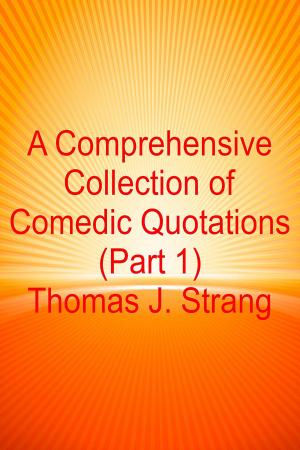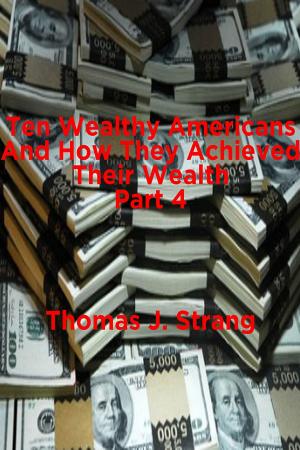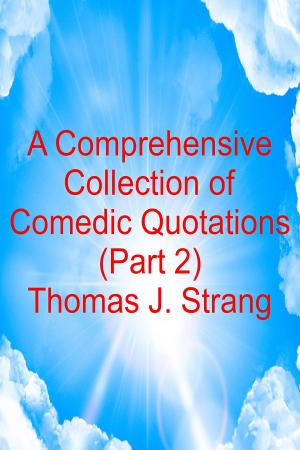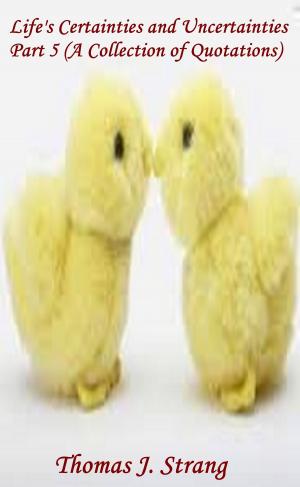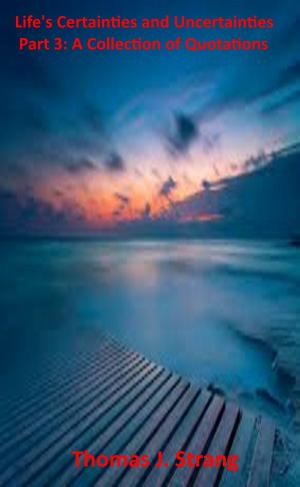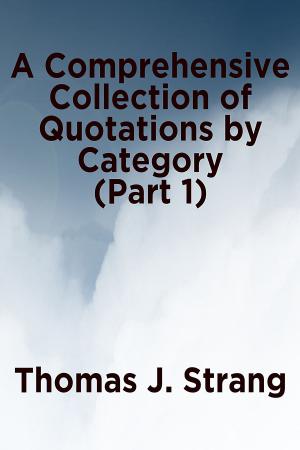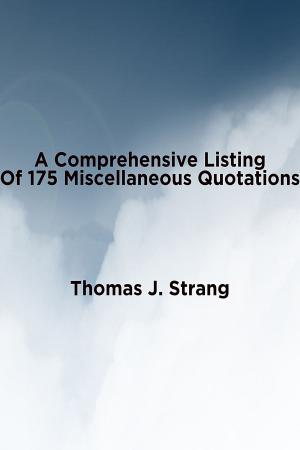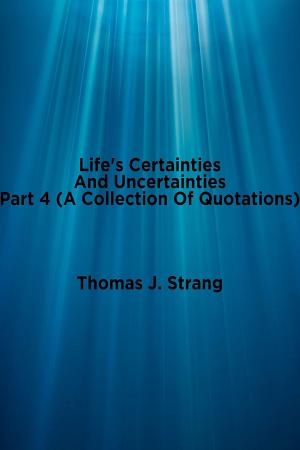Patriotism: A Collection Of “Quotations”
Nonfiction, History, Reference, Social & Cultural Studies, Political Science| Author: | Thomas J. Strang | ISBN: | 9781311324863 |
| Publisher: | Thomas J. Strang | Publication: | December 28, 2014 |
| Imprint: | Smashwords Edition | Language: | English |
| Author: | Thomas J. Strang |
| ISBN: | 9781311324863 |
| Publisher: | Thomas J. Strang |
| Publication: | December 28, 2014 |
| Imprint: | Smashwords Edition |
| Language: | English |
The general notion of civic virtue and group dedication has been attested in culture globally throughout the historical period. For the Enlightenment thinkers of 18th-century Europe, loyalty to the state was chiefly considered in contrast to loyalty to the Church. It was argued that clerics should not be allowed to teach in public schools since their patrie was heaven, so that they could not inspire love of the homeland in their students. One of the most influential proponents of this classical notion of patriotism was Jean-Jacques Rousseau.
Enlightenment thinkers also criticized what they saw as the excesses of patriotism. In 1774, Samuel Johnson published The Patriot, a critique of what he viewed as false patriotism. On the evening of 7 April 1775, he made the famous statement, "Patriotism is the last refuge of the scoundrel." James Boswell, who reported this comment in his Life of Johnson, does not provide context for the quote, and it has therefore been argued that Johnson was in fact attacking the false use of the term "patriotism" by contemporaries such as John Stuart, Earl of Bute (the patriot-minister) and his supporters; Johnson spoke elsewhere in favor of what he considered "true" patriotism. However, there is no direct evidence to contradict the widely held belief that Johnson's famous remark was a criticism of patriotism itself. Patriotism is the will of the members of a country to support the country and help it continue.
The general notion of civic virtue and group dedication has been attested in culture globally throughout the historical period. For the Enlightenment thinkers of 18th-century Europe, loyalty to the state was chiefly considered in contrast to loyalty to the Church. It was argued that clerics should not be allowed to teach in public schools since their patrie was heaven, so that they could not inspire love of the homeland in their students. One of the most influential proponents of this classical notion of patriotism was Jean-Jacques Rousseau.
Enlightenment thinkers also criticized what they saw as the excesses of patriotism. In 1774, Samuel Johnson published The Patriot, a critique of what he viewed as false patriotism. On the evening of 7 April 1775, he made the famous statement, "Patriotism is the last refuge of the scoundrel." James Boswell, who reported this comment in his Life of Johnson, does not provide context for the quote, and it has therefore been argued that Johnson was in fact attacking the false use of the term "patriotism" by contemporaries such as John Stuart, Earl of Bute (the patriot-minister) and his supporters; Johnson spoke elsewhere in favor of what he considered "true" patriotism. However, there is no direct evidence to contradict the widely held belief that Johnson's famous remark was a criticism of patriotism itself. Patriotism is the will of the members of a country to support the country and help it continue.



